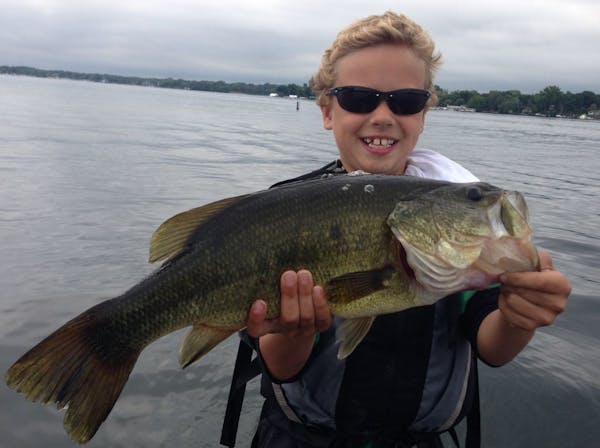Watch kids and their parents crowd around the fish tank outside the Department of Natural Resources building at the State Fair and it's apparent the kids hold the greater fascination.
And for good reason. Fish are by definition captivating critters to observe, and different in so many ways from what young people typically encounter on TV or the Internet.
The variety of Minnesota fish alone — never mind the countless species that swim in waters elsewhere — is reason enough to stop and stare at the DNR tank. Some fish are big and toothy (muskies, northerns), some small (bluegills) and some weird (gar).
Add to this that virtually every day of the year except when the State Fair is in session, Minnesota's fish exist out of sight of people, and it's easily understood why even the most attraction-stressed among fair-goers will stop and gawk long moments at these captive, and captivating, fish.
Given that, why are so fewer young people these days (particularly as a percentage of the population), growing up to be anglers?
Yes, everyone knows about the daily computer fix most kids require, and their television habits.
Also well understood are the effects of urbanization on family time and family-friendly activities such as fishing. The attraction to kids of team sports also plays a role, as do the at-t imes draconian practice-attendance requirements many youth coaches impose on kids and their families.
Yet the mystery remains: How can it be that so many kids are fascinated at a young age by fish, yet so relatively few become anglers?
Society's distractions alone can't explain the dulling effect to fishing and other nature-related activities many kids undergo as they age in this modern time.
A bigger culprit, obviously, is exposure. Kids who are taken fishing at a young age, and whose parents thereafter nurture any interest they might have in the sport, are more likely to grow up to be anglers.
How this mystery unfolds should interest everyone. Through license fees and taxes paid on fishing-equipment purchases, anglers financially support this nation's fish, fishing and clean water to a greater degree than any other segment of society.
It can't be good for any of us that as pressure on these resources increases, the number of people directly supporting them declines.
Dennis Anderson • danderson@startribune.com

Anderson: Trailblazing sonar will be in thousands of boats for opener

Anderson: Celebrate Earth Day by rekindling real connection to nature
Anderson: Anglers protesting tough new Mille Lacs rules are wrong

Anderson: Courts, not politicians, should rule on Red Lake, White Earth lands


